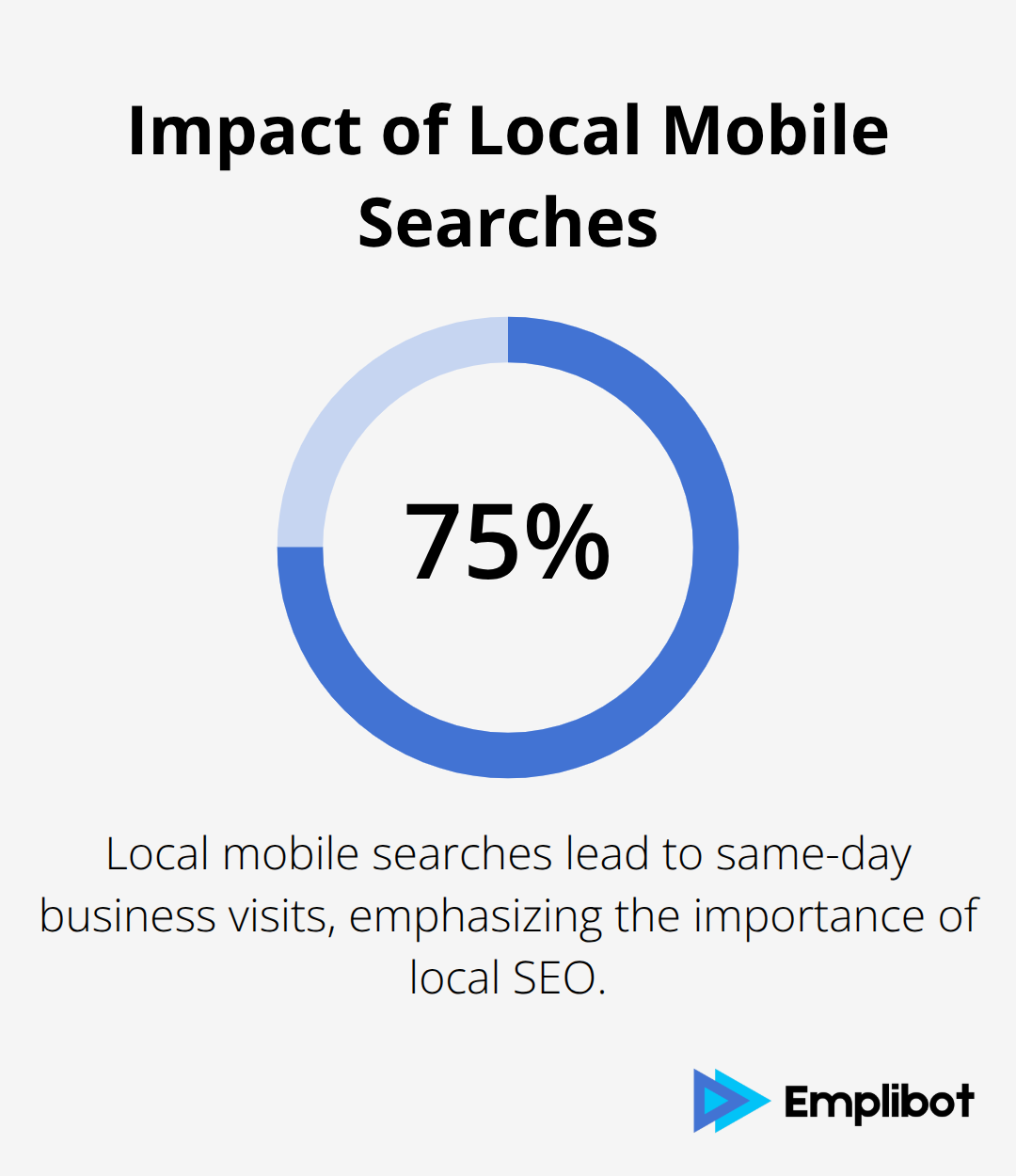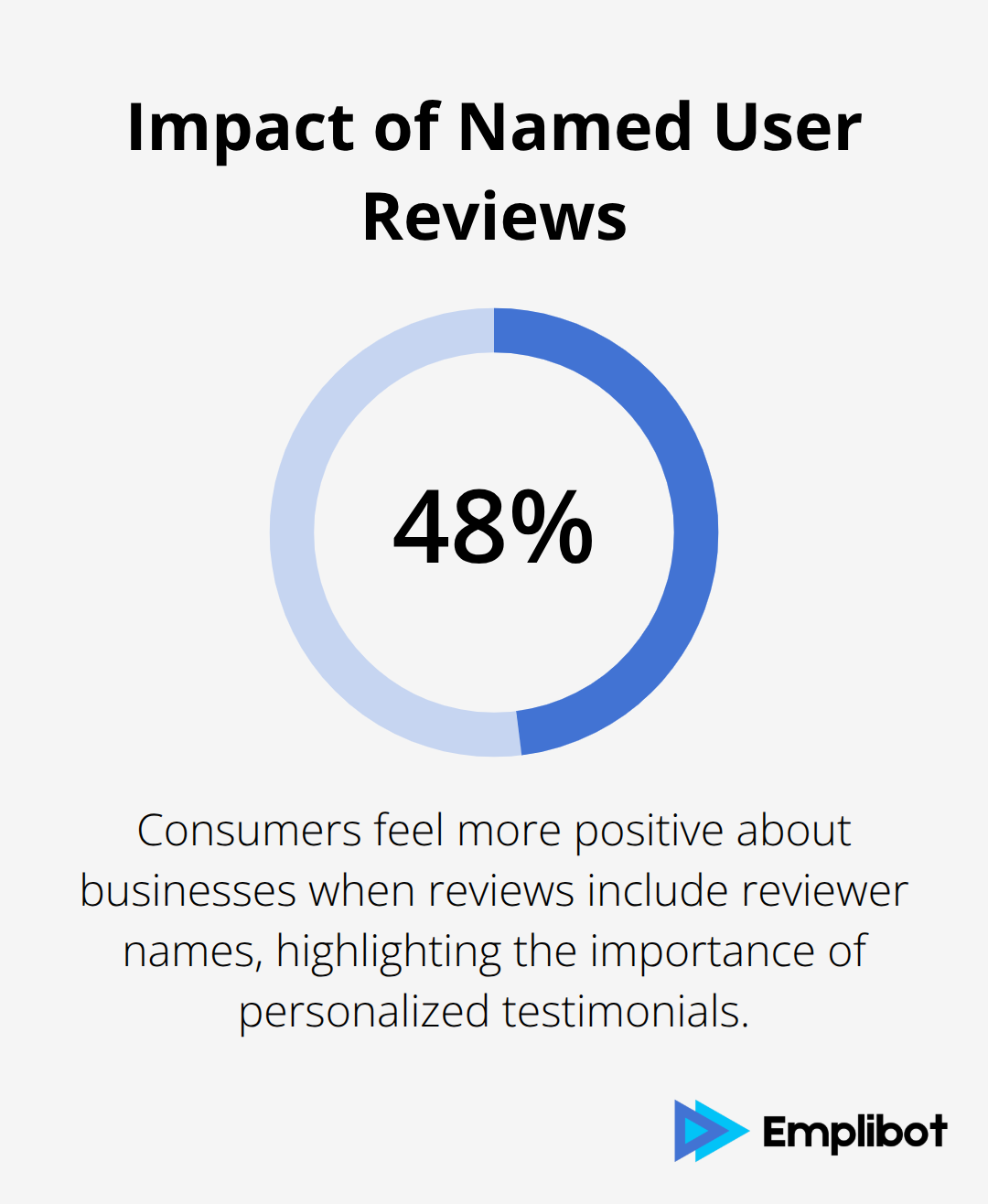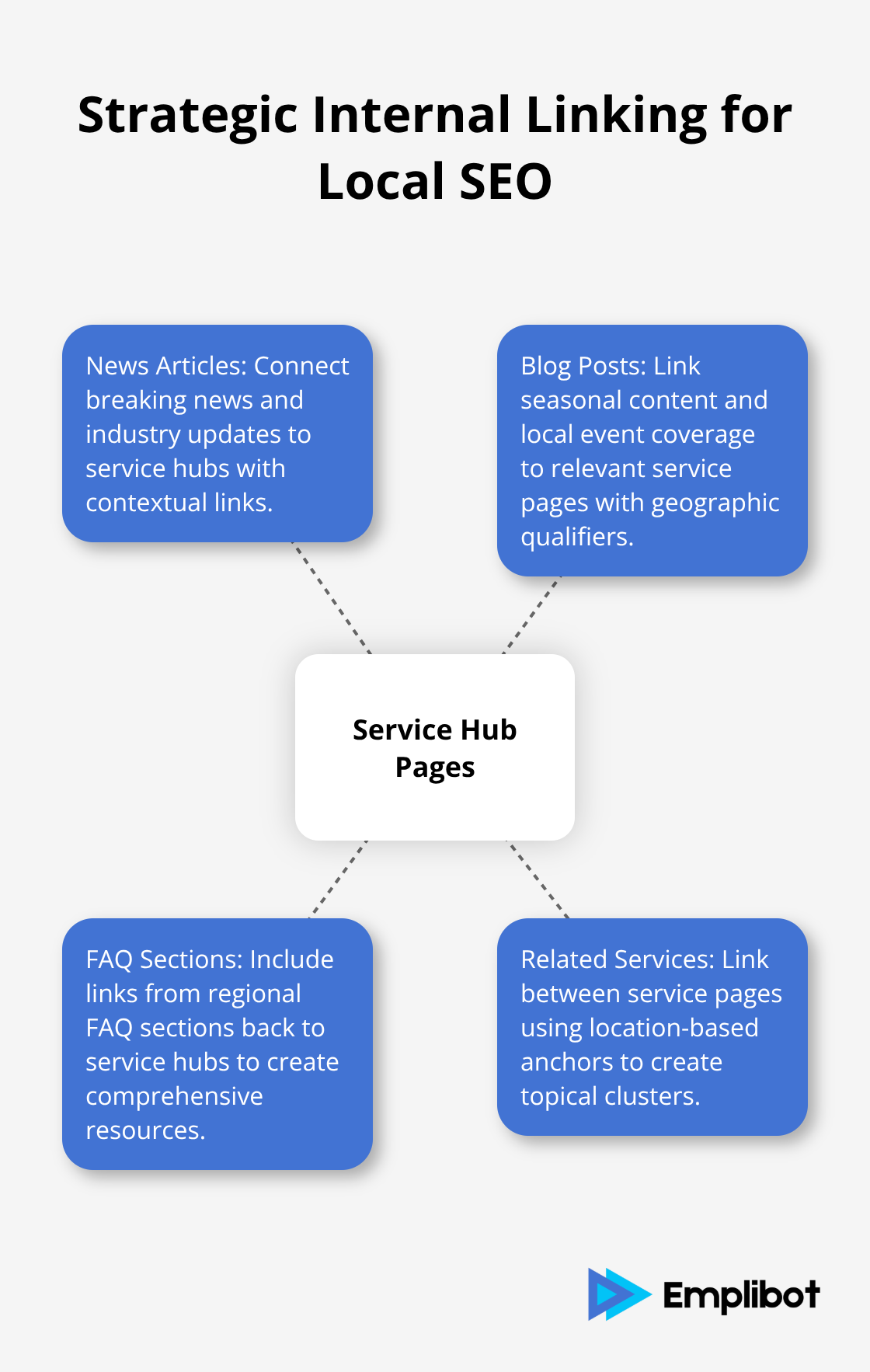Most businesses struggle with creating local SEO content that reaches multiple cities without building separate pages for each location. Traditional branch page strategies become unmanageable as you expand to new markets.
We at Emplibot have developed a hub-based approach that scales local SEO content efficiently. This method builds authority while targeting multiple locations through strategic content clusters and smart internal linking.
How Do Local Hubs Replace Branch Pages
Intent-based local hubs transform traditional local SEO by combining service pages with location-specific content blocks that target multiple cities simultaneously. This approach replaces the outdated model of creating separate pages for each location with strategic content hubs that rank for dozens of geographic variations. Local searches on mobile devices frequently lead to same-day business visits, which makes this consolidation approach particularly effective for businesses that target multiple markets.

Service Pages with Geographic Content Blocks
Service pages become powerful local hubs when you embed city-specific content blocks directly into the main page structure. Instead of creating separate pages for plumbing services in Dallas, Houston, and Austin, build one comprehensive plumbing service page with dedicated sections for each city that include local pricing data, service area maps, and city-specific regulations. Google searches frequently contain local intent, which makes these embedded blocks highly effective for capturing regional traffic. Include local phone numbers, addresses, and service hours for each geographic area within the same page structure. This method maintains topical authority while it targets multiple locations through a single, comprehensive resource.
Customer Stories and Regional Case Studies
Customer testimonials gain significant SEO value when they include specific location details and local business names. Feature testimonials that mention the customer’s city, neighborhood, or local landmarks to strengthen geographic relevance signals. Include case studies that highlight region-specific challenges, such as dealing with hard water issues in Phoenix or foundation problems in clay-heavy Dallas soil. Pages with local testimonials often convert better than generic testimonial pages. Add customer photos with local backgrounds, mention specific project locations, and include before-and-after images that show recognizable local features. These elements build trust while they reinforce location-based search signals across multiple target markets without requiring separate landing pages.
Location-Specific Data Integration
Statistical data becomes a powerful ranking factor when you integrate location-specific metrics directly into your service pages. Include local market data such as average home values, population demographics, and industry-specific statistics for each target city (like average HVAC repair costs in Miami versus Minneapolis). This data-driven approach signals topical expertise to search engines while it provides valuable information to potential customers. Local statistics also create natural opportunities for internal linking when you reference broader market trends or seasonal patterns that affect multiple regions within your service area.
How Do You Build Regional Content Clusters That Scale
Regional content clusters group related topics around geographic areas rather than individual cities, which creates more manageable content structures that still capture local search traffic. Start with broader regions like North Texas, South Florida, or Pacific Northwest, then create content hubs that address shared characteristics, regulations, and market conditions across multiple cities within each region. Research from BrightLocal shows that consumers increasingly value named user reviews, with 48% feeling more positive about businesses when reviews include reviewer names, which means your regional approach needs to incorporate location-specific social proof and expertise markers.

Regional FAQ Sections That Target Multiple Cities
Create FAQ sections that address region-specific questions like hurricane preparation for Gulf Coast businesses or winter heating concerns for Midwest markets. These regional FAQ pages become powerful link magnets that connect to your main service hubs while they target dozens of city-specific long-tail keywords through natural question variations. Structure your FAQs around shared regional challenges rather than city-specific issues to maximize content efficiency. Questions about coastal flooding affect Miami, Tampa, and Jacksonville equally, while mountain weather concerns apply across Denver, Colorado Springs, and Boulder. This approach allows one FAQ section to rank for multiple city variations while it maintains topical depth.
Geographic Content Planning That Works
Plan your regional clusters around shared environmental conditions, regulatory frameworks, and market characteristics rather than arbitrary geographic boundaries. Texas businesses face different licensing requirements than California companies, while coastal regions share hurricane concerns that inland areas never experience. Create content clusters around these natural groupings to maximize topical authority. Weather patterns, soil conditions, and local building codes create natural content opportunities that span multiple cities but remain highly relevant to local audiences. Map your target cities into logical regions based on these shared characteristics, then build comprehensive content that addresses regional expertise while it naturally incorporates city-specific keywords and examples.
Regional Expertise That Builds Authority
Demonstrate deep regional knowledge through content that addresses area-specific challenges generic national content cannot cover. Include region-specific pricing data, local supplier networks, and seasonal service patterns that show genuine market understanding. Content that mentions specific local suppliers, regional distributors, or area-specific regulations signals authentic local expertise to both search engines and potential customers. Reference local industry associations, regional trade organizations, and area-specific continuing education requirements to build credibility (like HVAC license requirements that vary by state). This approach scales efficiently because one piece of regional expertise content can rank for dozens of city-specific search terms while it builds genuine authority that competitors with generic content cannot match.
Your regional content strategy sets the foundation for connecting these hubs through strategic internal links that amplify local SEO performance across all target markets.
How Internal Links Amplify Local SEO Performance
News content and blog posts drive traffic when you connect them strategically to your service hubs through location-aware internal links. Create news articles about local events, seasonal trends, or industry developments that naturally reference your service areas, then link these articles directly to your regional content hubs with anchor text that includes city names and service keywords. A post about spring storm damage in Texas can link to your roofing service hub with anchor text like “storm damage repair in Dallas,” while an article about winter heating costs can connect to your HVAC service page with links that target specific metropolitan areas. Research shows that internal links pass significant ranking authority between pages, which makes this connection strategy essential for scaling local SEO without duplicate content.
Strategic Link Networks That Build Geographic Authority
Transform your content architecture into a geographic link network by connecting related service pages through city-specific anchor text and regional content bridges. Link your plumbing service hub to your electrical service hub with location-based anchors like “Dallas electrical contractors” or “Austin plumbing and electrical services” to create topical clusters that search engines recognize as comprehensive local resources. Include links from your regional FAQ sections back to service hubs, and connect seasonal content pieces to relevant service pages with geographic qualifiers. Weather-related blog posts should link to appropriate service pages with anchors that include both the service and location, such as “Houston AC repair after summer storms” or “Chicago heating maintenance before winter.” This network approach signals to search engines that your content covers multiple services across specific geographic regions with genuine expertise.

Content Calendar Integration for Maximum Link Value
Plan your content calendar around local events, seasonal patterns, and regional industry news that create natural opportunities for links back to your service hubs. Hurricane season content links naturally to storm damage services, while winter weather preparation articles connect to heating and insulation services. Local business spotlights, community event coverage, and regional market analysis pieces provide ongoing opportunities to link back to service pages with location-specific anchor text. Include internal links within the first 150 words of blog posts to maximize link authority transfer, and use varied anchor text that includes both broad regional terms and specific city names to capture different search intents across your target markets.
News-to-Hub Connection Strategies
Connect breaking news and industry updates to your service hubs through contextual links that feel natural to readers. When local regulations change (like new building codes or environmental requirements), create news posts that explain the changes and link to relevant service pages with anchors that combine the regulatory topic with location terms. Industry trend articles about rising material costs or new technology adoption can link to multiple service hubs across different regions, creating a web of connections that strengthens your overall local authority. This approach turns timely news content into permanent traffic drivers for your core service pages.
Final Thoughts
Local SEO content that scales without branch pages transforms how businesses approach multi-location marketing. This hub-based strategy eliminates the maintenance burden of managing dozens of separate city pages while building stronger topical authority through comprehensive regional content clusters. Regional hubs consistently outperform scattered branch pages in search rankings because they concentrate authority signals and create natural internal linking opportunities.
Your content becomes more valuable to users when it addresses shared regional challenges rather than repeating generic information across multiple city pages. Implementation starts with auditing your existing location pages and identifying opportunities to consolidate content into regional hubs. Map your target cities into logical geographic clusters based on shared characteristics like climate, regulations, or market conditions (such as coastal hurricane zones or mountain winter weather patterns).
Emplibot handles keyword research, content creation, and SEO optimization for your regional hubs automatically. The platform produces content tailored to your business and distributes it across social media platforms. This allows you to scale local SEO efficiently while focusing on serving customers rather than managing content.

